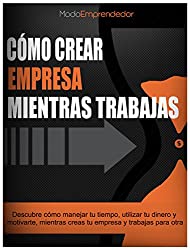
Today there is talk of the importance of emotional intelligence as a distinctive skill for any professional who wants to improve their interpersonal relationships.
It is also seen as a characteristic of leaders and negotiators of any company when influencing their employees or colleagues.
But…
What is emotional intelligence?

According to psychiatrist Norman Rosenthal, in the online journal psychologytoday, emotional intelligence (EI), It is the ability to perceive, control, and evaluate emotions in ourselves and others, and to use this information appropriately.
Areas of emotional intelligence.
John D. Mayer, Richard D. Roberts and Sigal G. Barsade, in the study entitled Human Skills: Emotional Intelligence; There are 3 main areas of emotional intelligence:
- Perception: Ability to recognize different emotions.
- Comprehension: Ability to identify the causes and consequences of emotions.
- Regulation: Ability to effectively manage what you feel and what others feel.
In this order, recognizing and influencing your emotions and those of others can positively convert and enhance your development; both personal and professional. So it’s time to know how to boost your emotional intelligence.
How to boost your emotional intelligence.



1. Identify and know your emotions.
Your emotions are based on the way you feel and deal with situations in your daily life. These situations may be related to the way you think, the way you socialize, and circumstances you face that are not under your full control.
One of the pillars to develop emotional intelligence is based on the recognition of our own feelings and then manage them properly.
It is important to know what our immediate thoughts are. For example when we have a discussion with a colleague at work or at home.
What is the first thing we think of when we had hopes for a new trip or job position and were rejected? Or when we argue with a friend or loved one? You can write them on a piece of paper daily; so you can review them later and identify a pattern.
2. Pay attention to your behaviors.
In the same way, once you have identified your emotions, you must do the same with your behaviors. How did you react when you argued with someone from your work or with your partner? Were you able to communicate adequately? How did it affect your day and your productivity?
Also read: 4 tips to be a more self-confident person
3. Take full responsibility for your emotions and behaviors.
Stephen Covey, author of the book “The Seven Habits of Highly Effective People”, highlights that one of the main problems of people is that we tend to blame others and fate for how we feel.
Part of developing emotional intelligence is accepting that our emotions and behaviors depend solely and exclusively on us.
We are solely responsible for managing our experiences and relationships with others; be positive or negative.
For example, if you feel hurt by something someone said or did, and you beat yourself up and fill yourself with negative thoughts, you are solely responsible for these feelings. The other person does not force you to blame yourself or make you feel bad.
This process is perhaps the most important point of emotional intelligence; and also the most challenging. It is where you start to really manage your emotions, eliminating negative experiences and feelings in your brain. The change in you is of course positive.
4. Become a more proactive than reactive person.
In many difficult or stressful situations, we tend to react unconsciously (reactively). This implies that we get carried away by our emotions; for which we do not think about the possible consequences of our actions.
Consciously reacting to difficult moments involves identifying how we feel and consciously deciding how we want to act. Being proactive implies taking full responsibility for your actions, knowing all the possible consequences of them.
5. Become a person of positive thoughts.
Once you identify your emotions and behaviors, you consciously react to the situations you face daily and take full responsibility for them; the last step is to create positive thoughts.
The key to emotional intelligence is how we manage our emotions so that difficult situations do not destroy us. For example, when you were waiting for an answer for a job you dreamed of and the answer is no, change harmful thoughts like “I’m not good enough” or “it was too much for me” or “I’ll never make it”, for ideas like: “this time I didn’t make it possible but I will learn and work hard to get the next one”.
Remember that emotional intelligence is a skill that requires practice.
You need time and dedication, but once you manage to start controlling your emotions and being a proactive person, you will notice the positive change in your personal life and relationships with others.
Since you know the importance of emotional intelligence, do you think emotional or cognitive intelligence is more important?
Emotional intelligence vs cognitive intelligence.
We have seen scientists win prizes and recognition, but also people who with their charisma win the hearts of all and go far.
Adam Grant, author of the best-selling Give and Take and Originals (he has sold more than a million copies and his works have been translated into more than 35 languages) has bad news for Emotional Intelligence advocates: Cognitive Intelligence It is much more important than the emotional.
Grant concluded this after conducting 2 studies:
The first was carried out with a group of salespeople, who carried out 2 tests to measure their perception, understanding and regulation of emotions. Then they took a test to measure their cognitive ability. Once they had the results, they tracked their job performance for several months.
Cognitive intelligence was much more important than emotional intelligence. On average, salespeople with the best cognitive abilities had annual revenues of $195,000, those with average cognitive intelligence earned $159,000, and those with the worst test results earned $109,000.
What happened to emotional intelligence?…It did not influence the results.
Later, Grant conducted a similar study but this time with job candidates. The result was the same. Cognitive intelligence was much more relevant than emotional intelligence.
More tests.
Although Grant is aware that emotional intelligence is not useless, a study conducted by psychologists Dana Joseph and Dan Newman, in which they compiled the results of all studies comparing emotional versus cognitive intelligence and its relationship to performance labor; showed that cognitive intelligence increases work performance by 14%, while emotional intelligence only 1%.
It stands to reason that in some jobs emotional intelligence is much more important than cognitive intelligence, but Grant strikes again with the following argument: “Even in ’emotionally demanding’ jobs, when it comes to job performance, cognitive intelligence is more important than cognitive intelligence. emotional intelligence”…Cognitive ability is the ability to learn. The higher your cognitive ability, the easier it will be for you to develop emotional intelligence when you need it.”
What do you think? Do you also think that it is not so important?
And remember, if you are really interested in creating your own business, you can read our book “How to create a company while working: Discover how to manage your time, manage your money and motivate yourself while creating a company and working for another” , where you will find all the information you need to found your own company, without having to leave your job.



